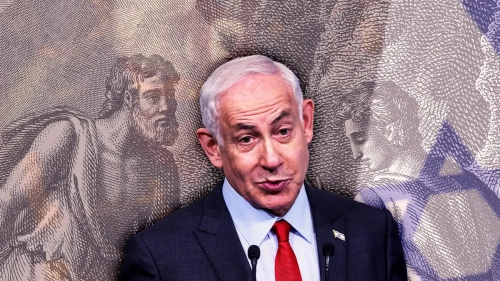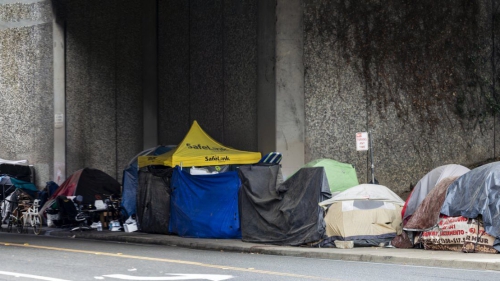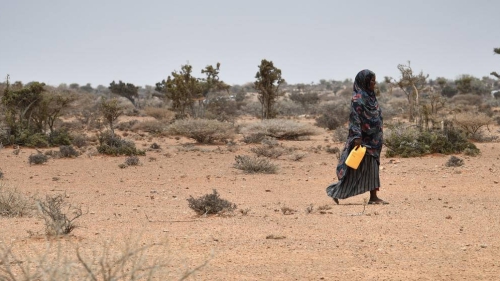Rethinking Poverty, Transforming Poverty
There is almost universal agreement about the need to fight poverty, and there is no dearth of endeavors to do so either. Caring for the poor is one of the noblest ways we love to self-actualize and realize the full worth of our humanity. Yet, we often fail to make efficient use of efforts and resources because of our insufficient understanding of poverty dynamics and their relations to the sociopolitical processes.
We often think of poverty and its extreme manifestations -- such as hunger and famine -- in terms of the classical economic theory, which says that our wants are unlimited and the resources to meet those wants are limited. This theory -- or mythology -- has had chilling effect on human creativity in addressing poverty.
This theory justified public apathy and inaction to prevent the famine that hit northern Bangladesh in 1974. At that time, I was a 10th grade student, and I witnessed how the majority of people in my neighborhood died from hunger and malnutrition. At that time, some parents drowned their children to hasten the end of their living hell before succumbing themselves. The famine decimated the population in my neighboring village that had a two-mile long cluster of more than several hundred overly crowded homes. Bangladesh, a delta of the size of Florida, has more than half the U.S. population.
Amartya Sen, who won the 1998 Nobel Prize in economics for worthy writings about poverty and famine, explains that the 1974 famine took place in Bangladesh at a time of peak per capita food availability in that country. He notes that several other famines in Africa and Asia also took place when there was little drop in the usual food production in those regions.
For Sen, the famines are results of 'entitlement failures': "Since food and other commodities are not distributed freely, people's consumption depends on 'entitlements,' that is, on the bundles of goods over which they can establish ownership through production and trade, using their own means." (Lecture in London on August 2, 1990) He argues that we can prevent famine by systematically recreating a minimum level of incomes and entitlements for those who are hit by economic changes -- i.e., by creating opportunities for jobs or trade for those who do not have buying power.
Sen also articulates that while people notice the famine-type manifestations of poverty, its more endemic forms -- the endemic deprivations -- elude national and international attention. He says, "If famines kill millions through starvation and epidemic diseases, endemic deprivation can afflict hundreds of millions through debilitation and illness, increasing mortality rates and shortening people's lives."
Indeed, poverty comes not alone but in battalions. Poverty begets poverty. Being born poor, having lack of food, having poor health, having lack of earning, failure to obtain education, and having lack of power are all endemic, interactive and interlocking causes and consequences of poverty. They grip the poor in a perpetual vicious cycle of spiral of disempowerment.
There is, however, another way to look at poverty. Taking a positive outlook, we can consider poverty a source of energy, which is relative, ubiquitous and constant. In this view, like natural energies, poverty cannot be eradicated but only transformed from its vicious state to a productive one. Poverty and all its endemic forms of deprivation can be a source of creativity, innovation, and change.
Organizing and communication have much to do with re-channeling or redirecting this universal source of energy. For example, the organizing activities of the Palestinian movements have turned a people of refugees within or outside their homeland into one of the highest achievers in the third world in terms of education, which is essentially a knock out blow on the vicious poverty cycle. Here, of course, poverty subsumes endemic deprivations inflicted upon a population by the rule of unwanted authorities.
If we consider human development from a holistic perspective, or if in the least we accept UNDP's definition of development as creation of "an enabling environment for people to enjoy long, healthy, and creative lives," then just having wealth as measured by the gross per capita GNP does not rid a people of poverty. In this perspective, the people of Oman are poorer than those of Sri Lanka, despite having about 14 times the per capita income of people of Sri Lanka. For the Omanis have lower life expectancy at birth (54) and than that of the Sri Lankans (74).
In sum, we should think of human well being from a holistic perspective. In our strategic plan to fight poverty, we should be concerned more about the endemic deprivations than about outbreaks of famine. We should consider poverty a source of motivation as opposed to frustration.
There is a Muslim tradition that says that Muhammad once refused to give any food to a poor man who asked for help. Instead, he gave him an ax with which he could build a business of selling firewood. Accordingly, we should give people tools instead of just food. In other words, we should re-gear our firefight against poverty into creating enabling conditions that help the poor help themselves.
Mohammad A. Auwal is an assistant professor in the Department of Communication Studies at California State University, Los Angeles and is a regular columnist for iviews.com

















